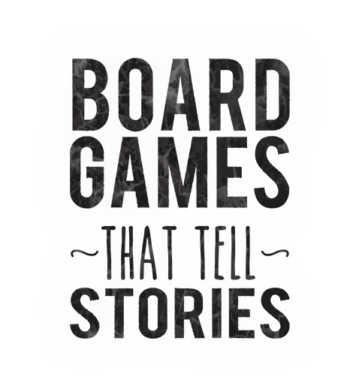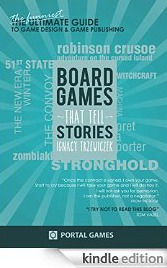First Martians: will they differ?
It was late at night, a few minutes after midnight. We’ve just finished the fourth game in the Lost signal campaign and we were preparing for the final episode, for the fifth, closing scenario. I was busy setting it up, while most of the other players went to get something to drink and took just a few minutes’ break before the final game. Two of us stayed at the table, David and me. He was helping me with the setup, and we were talking about the game.
After these four scenarios we were both impressed how the story developed, how the astronauts’ situation has been changing for the last two days of our playtesting and how many things happened in the HUB during this time. It was a crazy roller-coaster.
David asked: 'How much will the gameplays of different groups differ?’.
That was a very good point. Let’s talk about this today.
***
The stronger story you put into the game, the more interesting and better-designed turning points and twists you want to incorporate, the less freedom you leave for the players’ choices. That’s the main difference between books and board games. A writer creates an immersive story and puts the protagonists into it, while keeping a full control over every single decision a character makes. A designer creates conditions, a framework for the immersive story to emerge, then gives it to the players. They come and act like a bull in a china shop.
Now that board game designing trends change and players’ expectations evolve, we see more and more board games drift towards story-driven experiences.
The most famous last year’s examples are surely Pandemic: Legacy and Time Stories, but of course we’ve been seeing story-driven games for years. My personal favorite of all time is Sherlock Holmes Consulting Detective, but we definitely should mention Tales of Arabian Nights, the upcoming This War of Mine, or my very own Robinson Crusoe (especially with the HMS Beagle campaign expansion).
The question remains legit for First Martians as well as for every other game I mentioned. Can we solve Case #1 in Sherlock Holmes Consulting Detective in any different way? Can two or three groups have truly different experiences? Different paths to victory? Can we solve a Time Stories mystery in a few different ways? Can two groups of players discuss the game after they’ve finished it and tell each other two different stories?
The real question is actually different—the question is: 'Do we need to have unique experiences?’.
What would you choose if you had a choice: to have a freaking awesome story to discover but one that is pre-constructed to some degree with the main twists and plot points already fixed or to have a slightly less immersive story and experience but to have a full control over every single moment of the game and have no pre-constructed plot?
***
I put strong plot points into the campaign, I design epic events that will throw new tasks and quests at the players. They are scripted, they are the plot points, they are my huge story elements. At the same time I shuffle a ton of random shit into the event deck, hundreds of cards that will surprise the players. In Scenario #2, every group will face a sandstorm that will turn off the solar panels for the whole scenario. It’s scripted. One group, though, started this scenario with a destroyed oxygenator (a result of them playing Scenario #1), the other had a seriously sick astronaut in their HUB, the third one had a very low food supply because of a previous scenario’s pest.
The plot point remains the same, big and epic. The details, the scenery, the conditions—they differ. Two groups will, hopefully, tell a different story that took place within the framework I prepared for Scenario #2.
It’s hard. It’s like combining fire and water.
***
As always, I am super eager to hear your thoughts on the subject. Is pre-contructed immersive story good or bad? What do you think about Time Stories and its scenarios? Would it be a problem for you if you knew that a different group played exactly the same way? Is having only one way to solve a Sherlock Holmes case a problem for you? Have you ever thought about it when you played the game? Have you ever felt that playing a game with scripted events is just like reading prepared stuff?
Give me your comments. I need them. I need your feedback on the subject. Thank you.


 I strongly believe that good board game is the one that tells a good story. You play it and suddenly you are sucked into it, you feel chills on the skin. Emotions grow. In a moment you defend castle. You hear roar of warriors. You smell boiling oil. You are into it.
That's how I design my games. I always want to tell a good story. I want players to be into it. As deep as possible.
I strongly believe that good board game is the one that tells a good story. You play it and suddenly you are sucked into it, you feel chills on the skin. Emotions grow. In a moment you defend castle. You hear roar of warriors. You smell boiling oil. You are into it.
That's how I design my games. I always want to tell a good story. I want players to be into it. As deep as possible.




There is not the one answer to this.
I loved to play Pandemic Legacy! It had lots of impact on me while discovering and experiencing the story — i will never forget that „Oh, shit”-face of my wife when the first of those infected people appeared on the map. So on the one hand i am emotionally linked to that game, but on the other hand it will remain a one timer. You cannot play it again, it just does not work. Ok, maybe the 17 times we played that geam is enough, though. This kills TIME Stories for me, where you play a scenario once, maybe twice if you did not succeed. That’s it.
Robinson i can replay. And i do: I play it solo, we play it in pairs and in groups of three and four. I really do not know how many times i stacked this wood pile. Every time it was fun and every time it told a slightly different story. Besides, i never managed to survive completing the Beagle campaign. But i will try. Again and again in different group sizes.
So as a conclusion: the strong but narrow storyline as a one time experience may lead to stronger emotional ties and memories (maybe too glorified ones as time goes by). And yes, i like this.
But i think i prefer to visit my loved games more often…
Maybe there is a way inbetween? When i played the Lord of the Rings LCG there was one adventure in the caverns of the mountains where players suddenly hat to split up, lost all their cards and continued to play on their own. A remarkable experience if you did not know that this was to happen. I never played it again, because there where lots of other adventures and expansions that followed…
I suppose the correlated question here is: do we expect the *same* group to play the campaign again when they’re done?
If we do, then it’s hard. Through the scripted events, we’ll have to figure out how to make it different. The big surprises are gone; it needs to be up to emergent behavior from the game’s random elements to provide twists. And those twists will not be as strong as the scripted twists.
But if we assume the same design constraint as Pandemic Legacy or TIME Stories, that each campaign is meant to be played only once, then that requirement is gone and our task is a bit less hard (though still not easy). It’s okay that there isn’t much variance between groups, because the point is the storyline and its scripted twists. You’re removing variability, but adding narrative. And groups will (mostly) respect spoilers and try to not ruin the surprise for new players.
Maybe someday, we’ll figure out a way to generate narratives procedurally in a board game that will provide for coherent yet shocking twists every time. Some games come close, but it’s very tricky territory to navigate. Until then, in most cases, the choice is going to have to be between strong narrative and replayability.
I’m not a board game designer (yet), but I am interested in generating stories. Board games seem like a great tool for doing this.
Using „narrative” a little more loosely, I think you can still experience the same elements that drive a story, even in a completely abstract game. It depends on the context and how immersed the players become. Take a game of chess for example. There can be nail-biting moments, unexpected surprizes, an underdog that beats the master. Memorable moments are what makes it exciting, whether they are scripted or not. The art probably lies in constructing possibilities of memorable moments occurring, in a meaningful structure. Creating a kind of substrate of meaning and rules from which exciting moments can emerge.
I guess my conclusion is the same as what was said already, that creating a strong narrative ensures a good first experience, but having the possibility of great moments in the game also creates the possibility of not having them.
Which would I choose? My immediate thought was that I want/need BOTH in my life. It’s part of the reason why I have a whole bookcase full of games; different challenges, adventures, and puzzles appeal to me more on different days.
Partially pre-scripted stories CAN limit replayability but so long as I know ahead of time that that’s what I’m getting myself into I don’t find it to be a problem. At the same time, knowing there is a story there you haven’t finished can draw you back to keep playing until you feel you’ve seen everything. More free-flowing games can theoretically be played any number of times but are also more likely to get left on the shelf after only one use if it didn’t appeal that deeply for whatever reason. Case in point: My friends and I didn’t like Legends of Andor that much but we played it 5-6 times, trying to finish it. We eventually stopped one short of completion and this fact still leaves me feeling dissatisfied, even though there are many other games I’d far rather play. Conversely, Terra Mystica is a MUCH better game but we’ve only played it 2-3 times; there’s no ongoing story in the box to call to us to grab it off the shelf.
Is pre-contructed immersive story good or bad?
An immersive story is good. Pre-constructed is neutral and irrelevant to the person experiencing the story. Immersive is key.
What do you think about Time Stories and its scenarios?
I enjoy TIME Stories. I will continue to purchase and consume them as long as I enjoy them.
Would it be a problem for you if you knew that a different group played exactly the same way?
Why would that be a problem for me?
Is having only one way to solve a Sherlock Holmes case a problem for you?
Why would that be a problem for me. I never get all the right leads and only the right leads and it’s more about the fun of exploration than solving the case, for me.
Have you ever thought about it when you played the game?
There being only 1 right way? I have never tried to solve the cases utilizing the minimal possible visits . . . where would be the fun in that?
Have you ever felt that playing a game with scripted events is just like reading prepared stuff?
A game and a book are two very different experiences. Or . . . they should be. If the events are fun, you’re golden. If the events are boring, game or book, you’re in trouble.
Board games mix mechanics and gameplay with story. If the act of playing the game is not fun, no amount of story will keep me into that game.
That said, I love story, and if good gameplay is there, I want more scripted story eevents that will wow me.
Charterstone (Spoiler Alert) …
…never wowed me. I was waiting for something, and invasion or the King coming in overjoyed or pissed off. Something! Keep making memorable events, please!
Hm, you might be interested in how Left 4 Dead maps playing through the same maps fun more than once.
There are a few scripted moments, especially in the finales, however the „AI director” is free to drop in a Tank, or a Witch, or other special infected during the rest of the time.